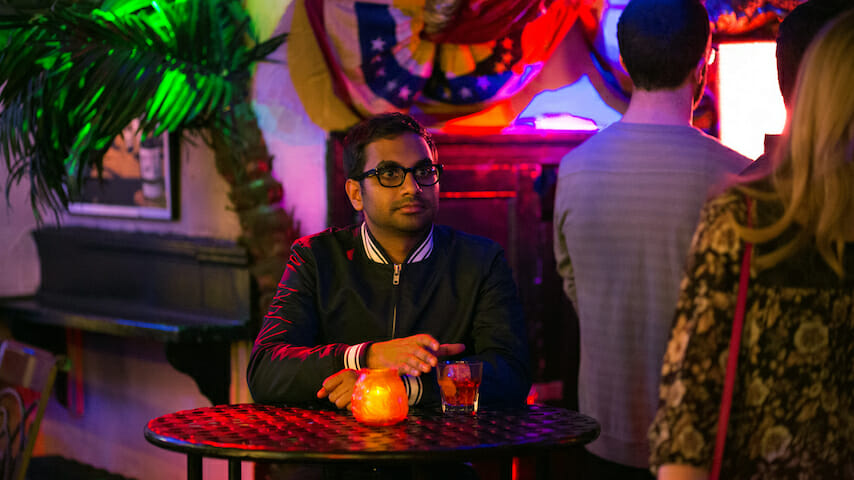TV Rewind: Master of None Has Become a Time Capsule for Peak-Hipster New York
Aziz Ansari’s and Alan Yang’s stunning series is now a snapshot of a former reality: NYC circa 2016.
Photo Courtesy of Netflix
Editor’s Note: Welcome to our TV Rewind column! The Paste writers are diving into the streaming catalogue to discuss some of our favorite classic series as well as great shows we’re watching for the first time. Come relive your TV past with us, or discover what should be your next binge watch below:
![]()
Master of None is about love and pasta and identity, but it’s also about hipsters.
Remember those guys? Now, we’d just refer to them as “people-who-live-in-Fort-Greene-and-drink small-batch-coffee-and-listen to-Father-John-Misty,” but, circa 2015, the word “hipster” brought to mind a very specific image (perhaps even one of these!) of someone who considered themselves to be “quirky,” “cool,” or “counterculture,” but would never actually own the “hipster” title. And there is perhaps no other show in the history of modern television that so accurately captures the plight of the hipster than Master of None, the popular sepia-toned Netflix dramedy created by sitcom lords Aziz Ansari and Alan Yang. The show’s larger themes creatively dealt with family, friendship, and modern relationships (much like Ansari’s book Modern Love). But, more often than not, the result was a dynamic look at New York City’s peak hipster era, a time when bearded brewmasters wore Warby Parkers and overalled goat cheese connoisseurs were planting the seeds of what would eventually become the millennial aesthetic.
When the series aired its two seasons in 2015 and 2017 on Netflix, it still felt like something of an event—Netflix had marquee shows like House of Cards and Orange is the New Black doing work for them, but in 2015, Master of None was still one of only a few legitimate original series on the streaming platform. Thanks in part to the liberties that come with building a streaming-exclusive, and also in part to their respective appreciations for what was happening in Brooklyn in the early 2010s, Yang and Ansari went a little wild aesthetically—in the best way. Master of None, whose soundtrack is almost exclusively retro funk music and which makes obvious references to vintage films throughout (the hipster way!), is presented as a series of vignettes with certain prevailing plotlines, but sometimes the main character’s arc (that of Ansari’s Dev, a 30-something struggling actor) is pushed to the side for the sake of a larger narrative, and the result is a more all-encompassing story of a city and its people than what you might get with a typical sitcom.
-

-

-

-

-

-

-

-

-

-

-

-

-

-

-

-

-

-

-

-

-

-

-

-

-

-

-

-

-

-

-

-

-

-

-

-

-

-

-

-








































